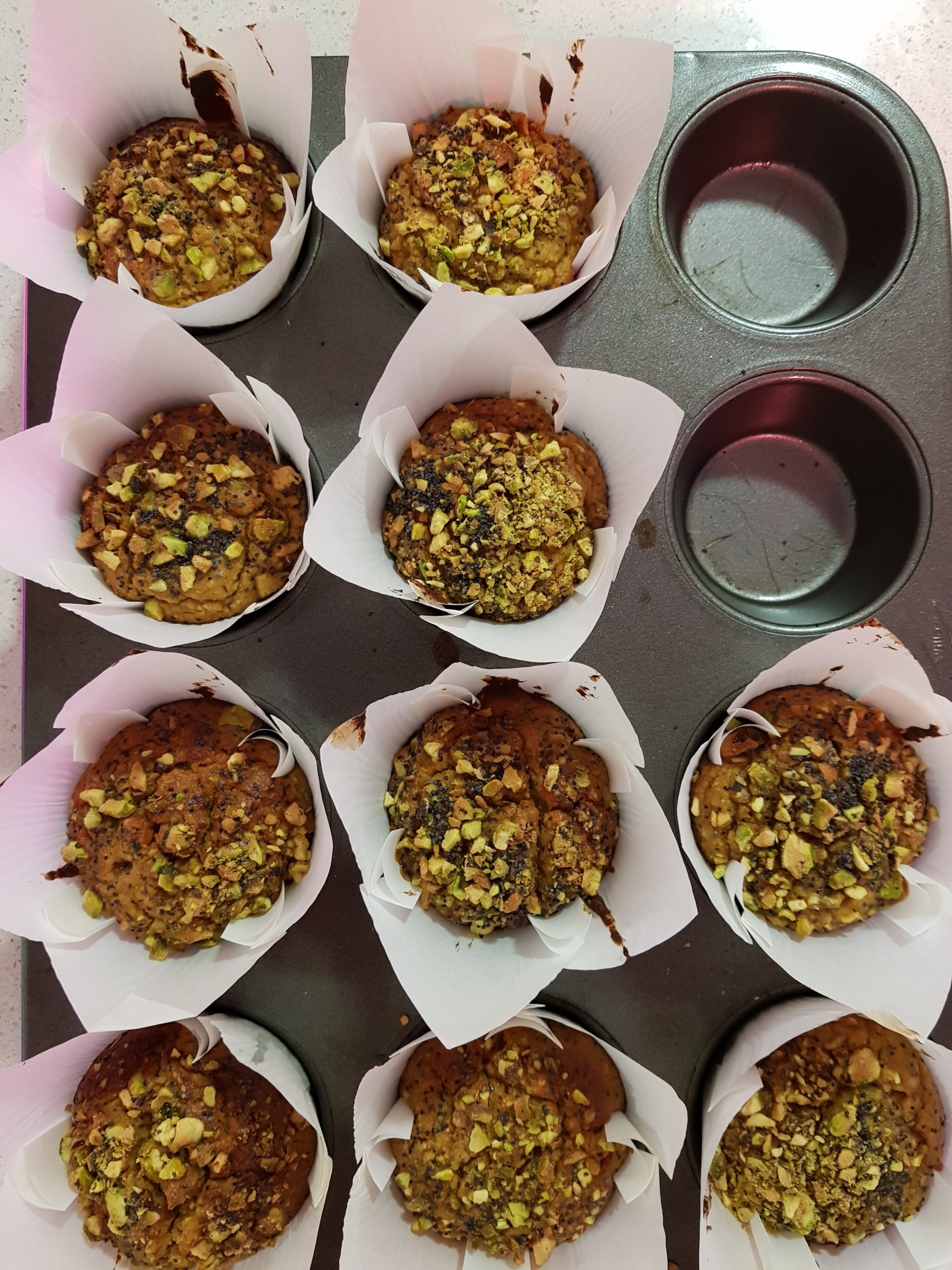We all love muffins and they are often a convenient and yummy snack option. However, they often come with a hefty, less than nutritious caloric profile and this can impact both our waistline and overall health. Thankfully, there are raw ingredient options available to us to boost their nutritional profile and reduce poor quality calories.
Clean Orange, Poppy Seed & Pistachio Muffins
Ingredients
100g pistachios (unsalted), & an extra 1 ½ tbsp. chopped (for decoration).
100g almond flour/meal (if you don’t have any on hand, put 50g almonds in a food processor and grind down)
50g coconut flour.
60g rapadura sugar (or xylitol if you are looking to cut down on sugar)
1 tsp baking powder
1 pinch sea salt or Celtic salt or Himalayan salt
Zest of one orange + juice of 1 fresh orange.
1 tbsp. poppy seeds, plus 1 tsp additional for decoration
60mL almond milk
4 lightly beaten large eggs
3 tbsp. walnut, hazelnut or almond oil (or olive oil if neither are available to you)
1 tsp vanilla bean paste/extract
1 tsp ground cinnamon
Method
Preheat oven to 180⁰C. Line 10 spaces of a muffin tin with muffin cases.
Place 100g of pistachios in a food processor or blender and process until fine.
Place ground pistachios into a large bowl and stir in other dry ingredients as well as the orange zest.
Squeeze orange juice into a measuring cup and add almond milk up to 175mL. Pour mixture over dry ingredients and add eggs, oil and vanilla. Stir until smooth.
Spoon mixture into prepared muffin cases, top with designated decorative pistachios and poppy seeds.
Bake for 25-30 mins or until a fork or skewer comes out clean.
Leave to cool.
Transfer into an airtight container for storage in the fridge or freezer if left for more than 4 days.



